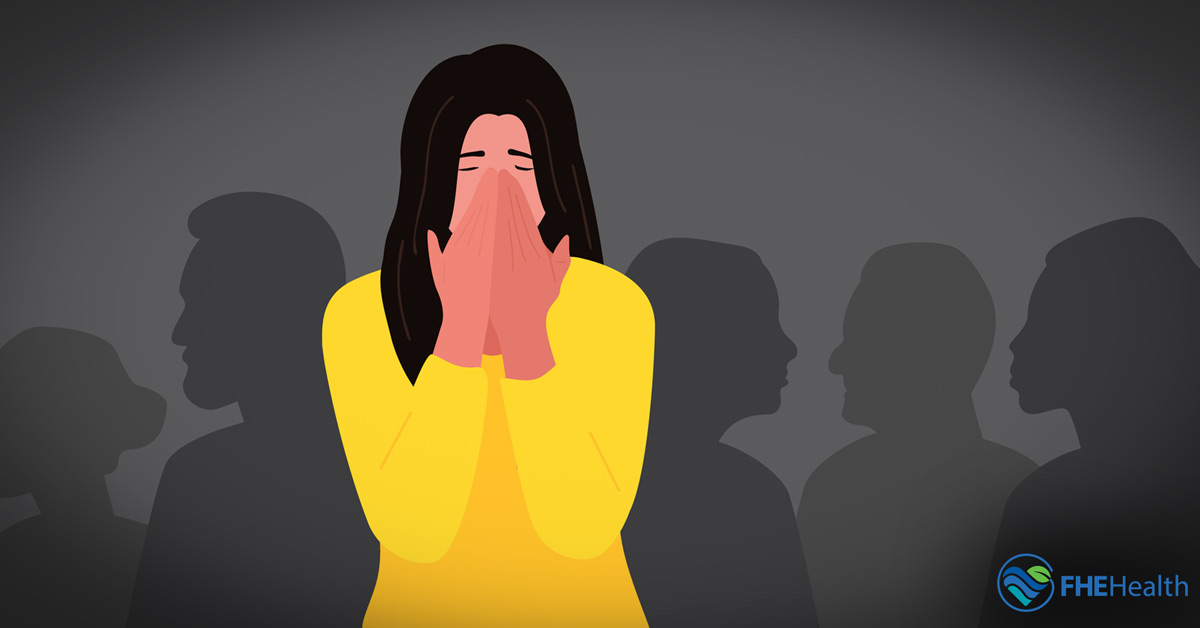
What is Anxiety?
The definition of the word anxiety is as follows: “a feeling of worry, nervousness, or unease, typically about an imminent event or something with an uncertain outcome.” If we go simply off of that definition alone, many of us have probably had many moments where we felt some anxiety. Life is full of big moments that can cause some worry. I remember the nervousness I felt when I interviewed for a recent scholarship to go back to school. I love to speak in front of a crowd but I still get butterflies in my tummy right before I go on stage. Being nervous can be a good thing. It let us know something big or something important is going on.
What is Generalized Anxiety?
But what about when it starts to be bigger than the occasional moment? What happens when it starts to dictate your life? What about when it becomes a constant factor of every thinking, when it causes avoidance of everyday things? That is when we start to cross the line into Generalized Anxiety Disorder. And when that anxiety is applied to social situations we have Social Anxiety Disorder. What do they even feel like?
The Nations Institute of Mental Health lists some of the symptoms as irritability, an inability to focus, feeling wound up, and stomach aches. It can definitely be a debilitating experience.
I’ve heard anxiety being described as a twist in the gut, a tightness in the chest, a shortness of breath, and constantly waiting for the other shoe to drop. It’s a constant feeling that just doesn’t go away. It can create a constant need to try and circumvent or avoid the triggers of anxiety. It’s a constant companion to the challenges of day to day existence.
What is Social Anxiety?
What about Social Anxiety? Don’t all people get nervous when it comes to social situations? The answer is no. I am actually one of those people that doesn’t experience social anxiety. I am an extrovert through and through. However, I am married to someone who battles social anxiety on a daily and intense level. So I asked them to describe it to me. They sent me the lyrics to a song.
The lyrics go: “His palms are sweaty, knees weak, arms are heavy
There’s vomit on his sweater already, mom’s spaghetti
He’s nervous, but on the surface he looks calm and ready to drop bombs
But he keeps on forgetting what he wrote down, the whole crowd goes so loud
He opens his mouth, but the words won’t come out
He’s choking how, everybody’s joking now
The clock’s run out, time’s up, over, blaow!”
If you guessed the song “Lose Yourself” by Eminem, you guessed correctly. I asked my spouse why they sent me that song and they said “It’s how I feel whenever I have to leave the house or interact with people.” Then it made sense to me.
The National Institute of Mental Health states that social anxiety disorder is “an intense, persistent fear of being watched and judged by others. For people with social anxiety disorder, the fear of social situations may feel so intense that it seems beyond their control. For some people, this fear may get in the way of going to work, attending school, or doing everyday things.”
Some of the symptoms for Social Anxiety Disorder overlap with Generalized Anxiety Disorder but the main difference is setting. While GAD occurs with all the day to day things, Social Anxiety Disorder occurs with social events or interacting with people.
How Does This Play Out?
So how would these types of anxiety disorders play out in real life? I’d like to introduce you to Billy and Joe. Billy has Generalized Anxiety Disorder and Joe has Social Anxiety Disorder. They both put in the required work and time into their presentation and they both know the content very well. The day arrives for their presentations and they both have stomach aches and fatigue so they call out sick. However, the underlying reason for calling out sick is different. Billy is worried that they didn’t put in enough work into their presentation, or that they got something wrong. Joe is worried that their office mates won’t like the sound of their voice, or that their hairline has receded since the last presentation.
They both have anxiety, they both avoided the meeting, but their reasons were different.
A Few Tools
Fortunately, there are some tools to help reduce symptoms of anxiety. Some of those tools are medications, therapy, and mindfulness. What works best for everyone varies but studies have shown that the best results are a combination of all three tools.
Remember, you aren’t alone in this journey. Several famous people are on this journey with you. That list includes people like Oprah Winfrey, Stephen Colbert, Adele, and many, many others. With the right tools, there is hope. You are worth it!






